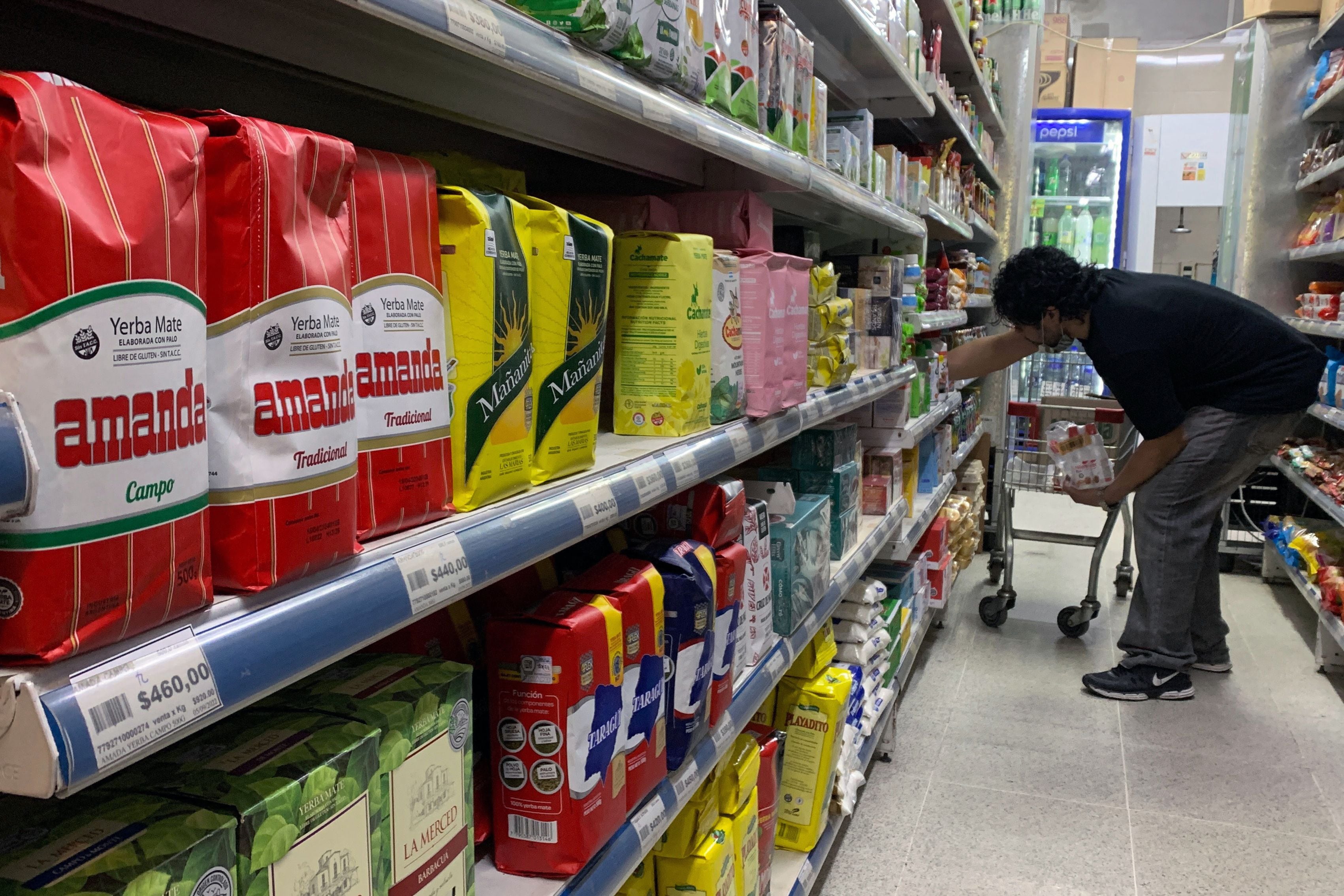
The inflation in Argentina moderated in January but in 12 months the increase in prices exceeds 250%, one of the highest rates in the world.
According to official figures, inflation in January reached 20.6%, below the 25.5% in December, but with an interannual rate of 254.2%.
The items with the greatest increases in January were goods and services, with 44.4%, transportation (26.3%), communication (25.1%) and food and non-alcoholic beverages (20.4%), according to the official statistics institute Indec.
The consumer price index for January coincided with the previous estimates made by the government of the ultra-liberal Javier Milei, around 20%, in a context of “stagflation” -economic stagnation with inflation- announced by the president himself shortly after taking office.
After the 50% devaluation of the peso in December, the liberalization of almost all prices in the economy and the first adjustments in transportation and public services rates, monthly inflation remains close to the historical record of February 1991 (27%) .
“Little to celebrate”
“There is little to celebrate with inflation at these levels, especially since in December salaries moved below 9% and in January closer to 15%, but also below inflation”summarized the economist Hernán Letcher.
The government had begun its administration with an inflation of 25.5% in December, which brought that of all of last year to 211.4%.
“With what we are doing in fiscal, monetary and exchange matters, we are lowering the inflation rate. “Wholesale (inflation) is already collapsing”Milei had said during his recent tour of Israel and Italy.
According to Indec, the kilo of bread cost 1,214 pesos in the country (US$ 1.3 at the official exchange rate), the liter of milk 842 pesos (US$ 0.95), the kilo of sugar 1,180 pesos (US$ 1.47), the sunflower oil 2,630 pesos (US$ 2.98) and ground meat 3,469 pesos (US$ 3.93).
“Some things I ate before I don’t eat now, like cheese and meat”said Elsa González, a 74-year-old retiree.
On average, the health sector registered a monthly increase of 20.55%.
“With daily medications, I now have to take half the pill or less than I did before because of the price”said Ramón Zamudio, 70, a person in charge of cleaning and taking care of a building in the center of Buenos Aires.
The Minister of Economy, Luis Caputo, predicted that inflation will be lower in February and March. “It’s already going down”he claimed.
Basic basket
In its two months in office, the government launched an ambitious deregulation of the economy, seeking to reduce the role of the State to a minimum, lower inflation and achieve stability.
To this end, Milei issued a mega decree with modifications to norms and laws, including a labor chapter whose application temporarily left justice ineffective.
In parallel, he sent a “Omnibus Law” of more than 600 articles that after arduous debates with allies and opponents ended up shipwrecking in Congress.
Caputo assured that he will adopt other executive measures to achieve the goal of “zero deficit” committed to the International Monetary Fund (IMF) by refloating a credit program for US$ 44,000 million.
The CGT, the country’s main union center, organized a 12-hour general strike in January and announced that it will ask for an 85% increase in the minimum wage, currently US$158,000 pesos (US$179.5).
This Wednesday, Indec set the basic food basket at 285,561 pesos (US$ 324.5) and the total basic basket at 59,823 pesos (US$ 674.7).
Source: Gestion
Ricardo is a renowned author and journalist, known for his exceptional writing on top-news stories. He currently works as a writer at the 247 News Agency, where he is known for his ability to deliver breaking news and insightful analysis on the most pressing issues of the day.












